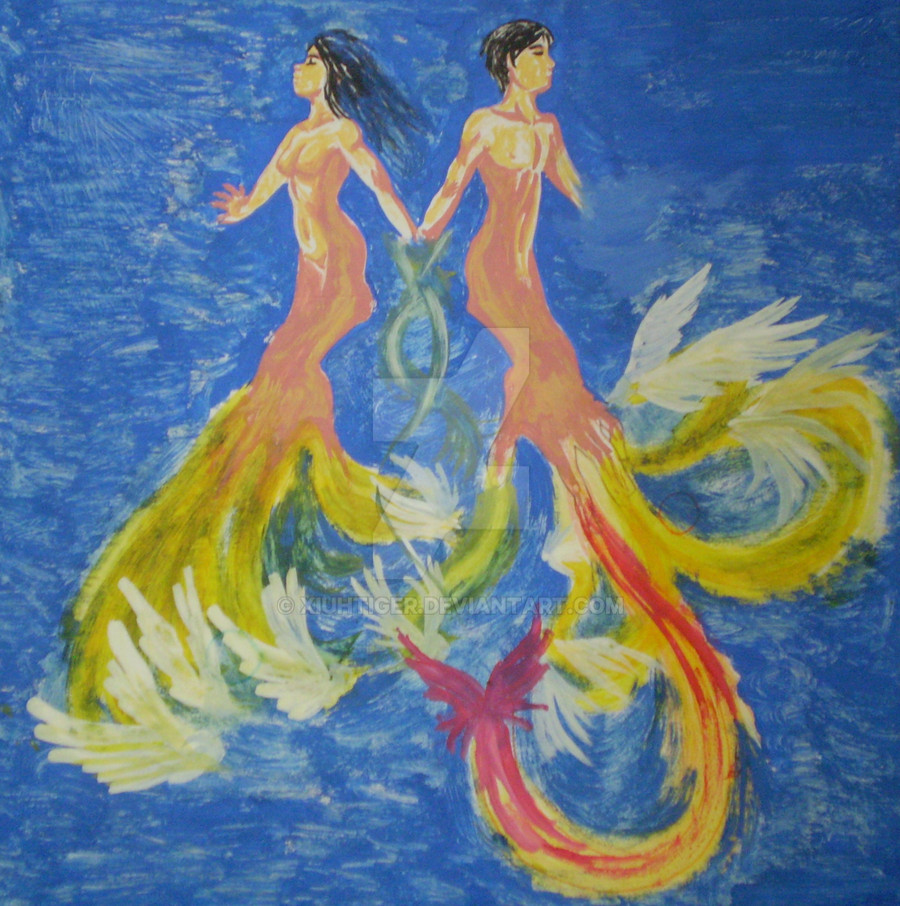HOME | DD
 XiuhTiger — Demiurgo
by-nc-nd
XiuhTiger — Demiurgo
by-nc-nd

Published: 2009-08-24 21:52:40 +0000 UTC; Views: 1089; Favourites: 9; Downloads: 0
Redirect to original
Description
El demiurgo, en la filosofía gnóstica, es la entidad que sin ser necesariamente creadora es impulsora del universo y alma universal. También es considerado un dios creador del Mundo y autor del universo en la filosofía idealista de Platón y en la mística de los neoplatónicos.Demiurgo significa literalmente: maestro, artesano; en sentido figurado: creador, hacedor.
Según el mito de Platón, expuesto en el Timeo, obra en la que describe la disposión, a partir de razonamientos fundados en la teoría de las ideas, del cosmos, al principio en el universo sólo había:
materia, informe y caótica,
ideas, que son perfectas,
el demiurgo, una divinidad,
espacio.
Platón nos cuenta que el demiurgo se compadece de la materia y copia en ella las ideas, obteniendo con ello los objetos que conforman nuestra realidad. De esta forma explicaba la separación entre el mundo de las ideas que son perfectas y el mundo real (material) que siendo imperfecto participa como una copia de la perfección. Esta copia responde a la anterior forma de revisar la esencia en el ser la cual es indicada como fallida e insostenible.El concepto platónico del demiurgo es retomado por el gnosticismo, identificándolo con Yahvé como el creador de la materia. Pero lo que en el platonismo era imperfección en el gnosticismo se transforma en maldad. El Universo era para los gnósticos una gradación, desde lo más sutil (Dios) hasta lo más bajo (la materia). Así el demiurgo como creador y ordenador del mundo material, se convierte en encarnación del mal, aprisionando a los hombres y encadenándolos a las pasiones materiales.
El Espíritu es la única parte de divinidad que le corresponde al ser humano, librando este una "batalla" permanente frente al cuerpo y lo material, transformando así la tierra en el infierno, entendiendo por infierno no el concepto del Hades o del inframundo sino, simplemente, el lugar más alejado de Dios. Tan sólo la sophia, la sabiduría, la gnosis, llega por amor, desde lo sutil hasta la tierra para librar al ser humano de la esclavitud de la materia. La salvación no es una cuestión de creencia o de piedad divina, sino que se convierte en una revelación, sólo posible para aquellos que aún no han perdido del todo lo poco de divinidad que todos los seres humanos poseen.
The Demiurge, in the philosophy Gnostic, is the entity that is creative but not necessarily driving the universe and universal soul. It is also considered a god creator of the World and author of the universe in the idealistic philosophy of Plato and the mysticism of the Neoplatonists.
Demiurge means literally: master craftsman; figuratively: creator, maker.
According to the myth of Plato, as outlined in the Timaeus, a work in describing the comply with such, from arguments based on the theory of ideas, the cosmos, at first in the universe just had:
matter, formless and chaotic,ideas that are perfect,the demiurge, a deity,space.
Plato tells us that the demiurge has compassion on the matter and copy into it the ideas, thereby obtaining the objects that make up our reality. This explained the separation between the world of ideas that are perfect and the real world (material), that being imperfect is involved as a copy of perfection. This copy answers from previous review the essence of which is being shown as failed and unsustainable.
The Platonic concept of the demiurge is taken up by Gnosticism and identified with Yahweh as the creator of matter. But what Platonism was imperfection in Gnosticism becomes evil. The Universe was a gradation to the Gnostics, from the subtle (God) to the lowest (matter). Thus the computer as a creator and demiurge of the material world, becomes the embodiment of evil, imprisoning men and chaining them to the passions materials.
The Spirit is the only part of divinity that corresponds to human beings, fighting this a "battle" standing over the body and the material, transforming the earth into hell, hell not understood the concept of Hades or the underworld but, simply, the most distant from God. Only the sophia, wisdom, the gnosis, comes by love, from subtle to earth to rid human beings from the bondage of matter. Salvation is not a matter of belief or divine mercy, it becomes a revelation, only possible for those who have not entirely lost what little of divinity that all human beings possess
Related content
Comments: 8

Nifty. Gnosticism is fairly obscure, so this was a treat.
👍: 0 ⏩: 0

preciosa ~ *w*
no se que mas decir.
me quede sin palabras....
👍: 0 ⏩: 1

es acuarelas?? jeje esta interesante la descripcion, aunque a mi parecer Platón no siempre tuvo la razon, manejaba demasiados simbolismos y en eso basaba todo, por eso a pesar de que me gusta la filosofia, los idealistas no me gustaban tanto, aristoteles me agrada mas XD
👍: 0 ⏩: 1

la verdad..esta explicacion es la mas sencilla que encontre... habia una donde te lo manejan mas en sentido religioso y algo esoterico, y como que me dolio la cabeza tres dias solamente de pensar en pasar eso a papel xD...
Pues lo que use primero fue lapiz...el boceto..luego algo de crayola..y como toque final, gouche...
y pues de platon... no soy mucho de darle fe a los filosofos de esa epoca... porque luego se contradicen y hay que ver el desastre mental que nos ocasionan jajaja...
👍: 0 ⏩: 1

ahh que magica la tecnica del gouche jeje, que padre, y pues si a veces es dificil saber a quien irle XD
👍: 0 ⏩: 1

sii...te ayuda mucho a lograr textura :3
👍: 0 ⏩: 1


























